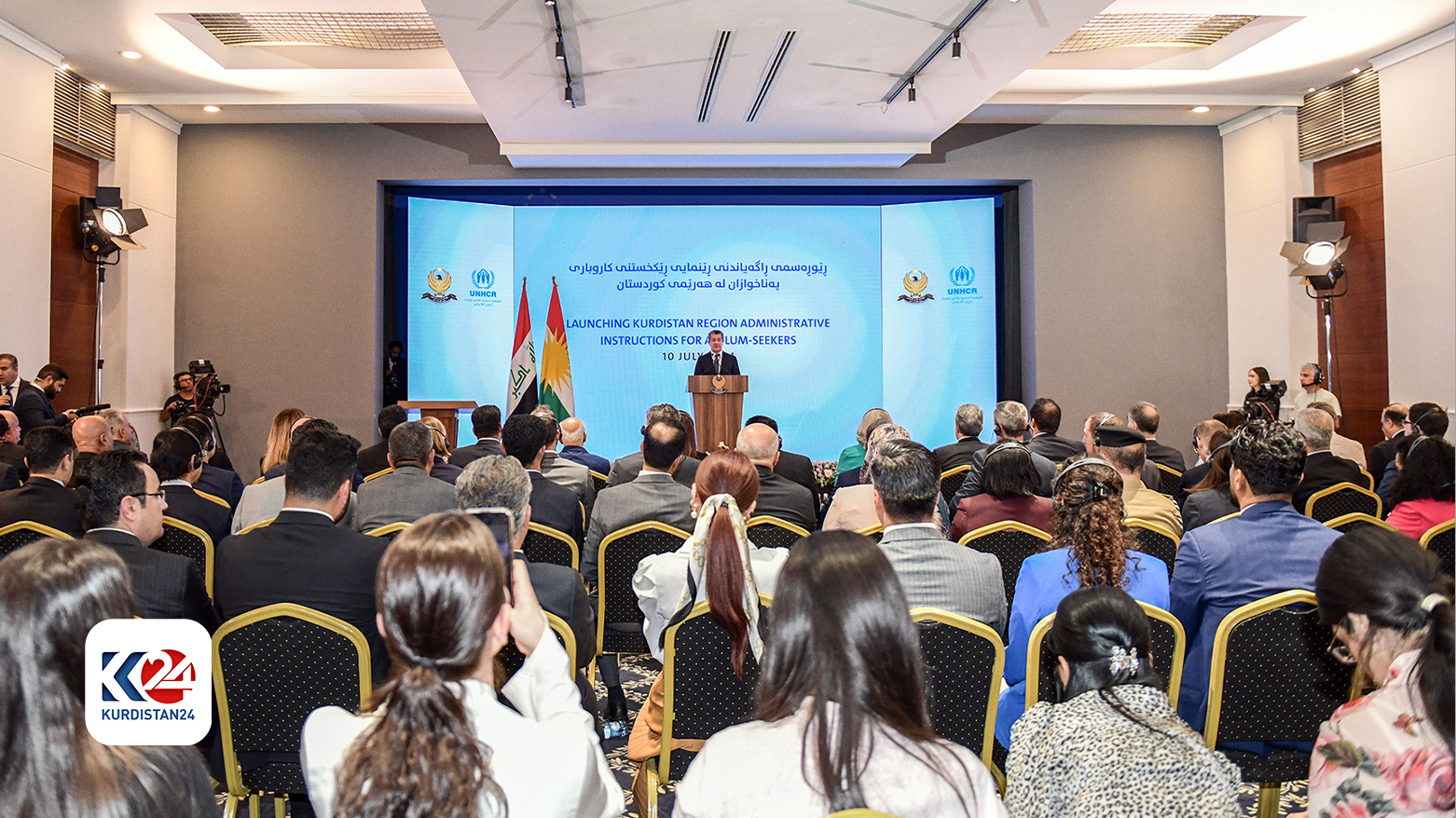US Praises New KRG Steps to Protect Refugees
“Honored to join KRG PM @masrourbarzani, MOI @rayberahmed, and @unhciraq in announcing new admin instructions to better protect rights of refugees."

WASHINGTON DC, United States (Kurdistan 24) – The U.S. ambassador to Iraq, Alina Romanowski, hailed new measures adopted by the Kurdistan Regional Government (KRG) to simplify administrative measures for refugees and asylum seekers.
The new steps were announced by KRG Prime Minister, Masrour Barzani, in a ceremony, titled, “Launching Kurdistan Region Administrative Instructions for Asylum-Seekers.”
Read More: KRG to strip the red tape that made progress challenge for 278,000 asylum-seekers, says PM Barzani
The new measures were developed by the KRG Interior Ministry in coordination with the UN High Commissioner for Refugees in Iraq.
The event was attended by Romanowski, along with senior KRG officials, including Interior Minister, Reber Ahmed, who actually signed the new decree, and Safeen Dizayee, head of the KRG’s Department of Foreign Relations.
“Honored to join KRG PM @masrourbarzani, MOI @rayberahmed, and @unhciraq in announcing new admin instructions to better protect rights of refugees,” Romanowski tweeted.
“Refugee & IDP returns must be safe, voluntary, signified, sustainable,” she continued, as she concluded with praise for the Kurdistan Region.
“I recognize IKR [Iraqi Kurdistan Region] for its efforts hosting many Syrian refugees and Iraqi IDPs,” she said.
Honored to join KRG PM @masrourbarzani, MOI @rayberahmed, and @unhcriraq in announcing new admin instructions to better protect rights of refugees. Refugee & IDP returns must be safe, voluntary, dignified, sustainable. I recognize IKR for its efforts hosting many Syrian refugees…
— Ambassador Alina L. Romanowski (@USAmbIraq) July 10, 2024
Baghdad Closed Camps—Presses KRG to do Same
The issue has become particularly important, because the Baghdad government has been moving to close all camps for Internally Displaced Persons (IDPs), including in the Kurdistan Region. In January, it set July 30 as the deadline. The KDP, however, has said it will not close the camps or force people to return to their homes, if they are unwilling to do so.
The position of the KRG is that people should return voluntarily and not be forced to relocate.
There are nearly one million IDPs and refugees in the Kurdistan Region. Of that number, 630,000 are IDPs from other parts of Iraq.
Read More: KRG hosts 902,000 refugees, collaborative efforts underway for return process
Of the refugees, the largest number, some 230,000, are Syrian, many of them Kurds. That is followed by 8,000 Iranian refugees, and a similar number of refugees from Turkey.
The KRG position toward IDPs and refugees has long been flexible and understanding of the difficulties they face—much more so than Baghdad.
Already in January, the Iraqi government had closed most of the camps under its control and was pushing the KRG to do the same.
The U.S. Consul General, Mark Stroh, speaking then in a Yezidi district of Nineveh Province, expressed deep appreciation of the hospitable policy of the Kurdistan Region toward the displaced and dispossessed.
Stroh began by recognizing the Kurdistan Region, people and government, “for being an important place of refuge in an often unstable and insecure part of the world.”
In many places around the world, local communities have not welcomed IDPs and refugees, as the Kurdistan Region has done, he said. This “is a testament to the warmth of hospitality and the resilience of the residents of the IKR.”
“We strongly welcome the policy of the Kurdistan Regional Government, which has consistently said that no displaced Iraqis will be forced to go home,” Stroh said, and ”the United States has been and will continue to be your partner in supporting these displaced communities.”
Read More: U.S. Consul General praises KRG’s open door policy for IDPs and refugees